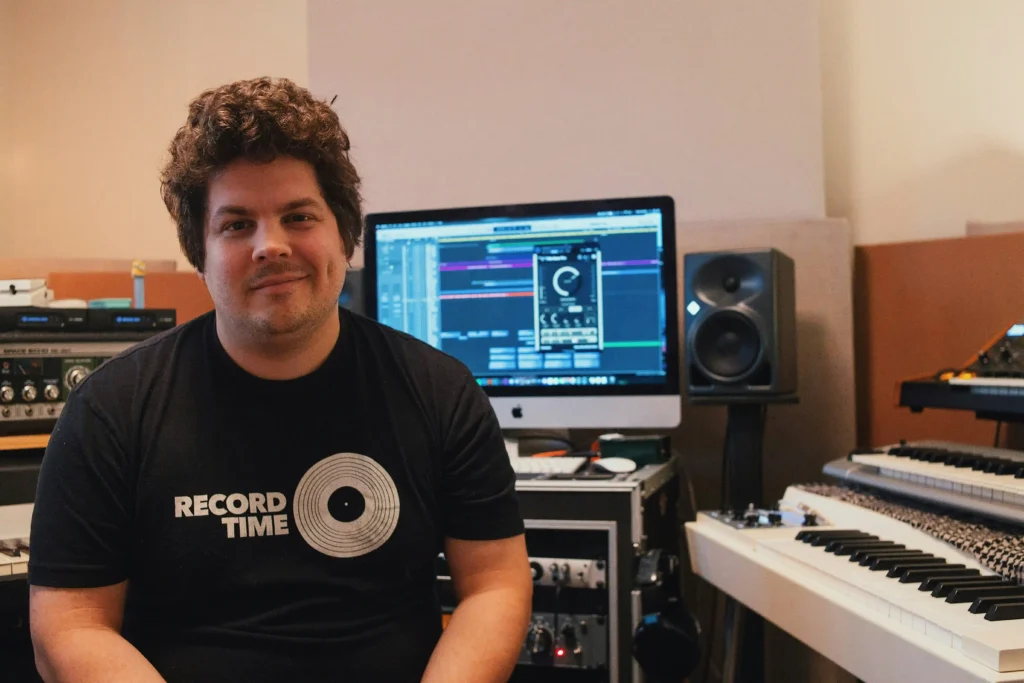In music creation, harmonious collaborations are often the cornerstone of groundbreaking compositions. Yet, beyond the melodies and rhythms lies the critical aspect of protecting your artistic endeavors through a well-crafted music contract. Additionally, for independent musicians seeking to safeguard their rights and foster productive collaborations, understanding how to write music contracts is essential.
This music contract comprehensive guide will provide valuable insights and actionable advice on each type of contract, empowering you to navigate the complexities of the music industry.
Become One of 8,000+ Innovators Transforming the Future your Business!
Subscribe and access over 300 editable and downloadable contracts
The Melody of Music Agreements
The music contract is the backbone of any musical project, outlining the terms, rights, and obligations. Besides, crafting these agreements ensures that everyone is on the same page, reducing misunderstandings and potential legal disputes. While the best is to seek legal counsel, especially for complex arrangements, here’s valuable advice for each type of contract.
Music Producer Contract Template

When collaborating with a music producer, the foundation of your partnership is a well-drafted contract. Here’s what to keep in mind:
- Production Services: Clearly outline the producer’s role and services. This could range from beat production to arrangement and mixing. Specify the extent of their involvement to avoid confusion.
- Compensation: Define the financial arrangement. Whether it’s an upfront fee, a percentage of royalties, or a combination, ensure it accurately reflects the producer’s contribution. In addition, consider a payment schedule tied to project milestones.
- Rights and Ownership: Address ownership of the final product. Be clear about who holds the rights to the master recordings and whether the producer retains any rights or royalties.
- Timeline: Set realistic deadlines for each phase of production. This ensures accountability and keeps the project on track.
- Crediting: Detail how the producer will be credited in the final work and promotional materials. Crediting is both a professional courtesy and a legal requirement.
- Termination: Include conditions under which the collaboration can be terminated. Clarify the consequences of termination, such as any compensation owed and ownership of work completed.
Music Collaboration Contract

Collaborating with fellow musicians requires clear communication and mutual understanding. Here’s how to approach a music collaboration contract:
- Project Overview: Define the scope of the collaboration, whether it’s a joint album, a single track, or a performance series. Clearly articulate the goals and vision.
- Ownership and Rights: Address how ownership and rights will be shared among collaborators. Specify the revenue distribution based on ownership percentages.
- Financial Arrangements: Outline how revenue will be divided and how costs will be managed. Consider recording expenses, promotional costs, and potential revenue streams.
- Roles and Responsibilities: Understandably delineate each collaborator’s role. This includes songwriting, production, vocals, instrumentation, and other creative aspects.
- Credit and Attribution: Intelligibly state how each collaborator will be credited in the final product and promotional materials. Transparency is key.
- Dispute Resolution: Include a section on how disputes will be handled to prevent conflicts from escalating.
Music Artist Feature Contract

A feature music contract is vital for successful collaboration when featuring another artist on your track or being featured yourself. Here’s what to keep in mind:
- Track Details: Specify the track for which the featured artist’s contribution is intended. Include details about the genre, style, and theme.
- Rights and Usage: Address how the featured artist’s vocals or performance will be used in the track. On the other hand, clarify whether the featured artist retains any rights over their contribution.
- Compensation: Define the compensation arrangement. Whether it’s a flat fee, a percentage of royalties, or another structure, ensure it accurately reflects the value of the contribution.
- Credit: Clearly outline how the featured artist will be credited in the final track and any promotional materials. Proper credit is both ethical and legally required.
- Release and Promotion: Detail promotional obligations such as participating in promotional activities or appearances.
- Termination: Specify the circumstances under which the collaboration can be terminated by either party. Outline the consequences of termination, including the disposition of completed work and compensation owed.
Tips for Creating Effective Contracts for Musicians

- Clarity is Key: Write a music contract in clear, plain language. Avoid legal jargon that might confuse or intimidate the parties involved.
- Define All Terms, such as royalties, ownership, and compensation. Ambiguity can lead to misunderstandings and conflicts.
- Customization Matters: While templates are helpful, tailor each contract to your collaboration. Make sure the contract reflects your arrangement accurately.
- Keep Records: Maintain records of all communications and agreements. These records can be invaluable if disputes arise.
- Get Everything in Writing: Always have a written agreement, even if it’s a small collaboration. Verbal consensus is hard to prove in many disputes.
- Consider Future Scenarios: Anticipate potential scenarios and include clauses that address them. This includes changes in ownership, adjustments to royalties, or even potential disputes.
- Consult When Necessary: Consider legal counsel for complex arrangements or when significant financial interests are involved. While you can handle simple music contracts independently, professional advice can save you from future headaches.
The Wrap

To summarize: the intricate world of music contract may seem daunting. But armed with knowledge and a clear understanding of the nuances, you can protect your creative rights and foster successful partnerships.
Furthermore, remember that these contracts aren’t just legal documents—they’re the foundation of a productive and fulfilling musical journey. By approaching each contract with diligence, open communication, and a passion for your craft, you’re creating music and crafting sound partnerships that resonate in both the studio and beyond.
Disclaimer: This blog post is provided for informational purposes only and should not be considered legal advice.






